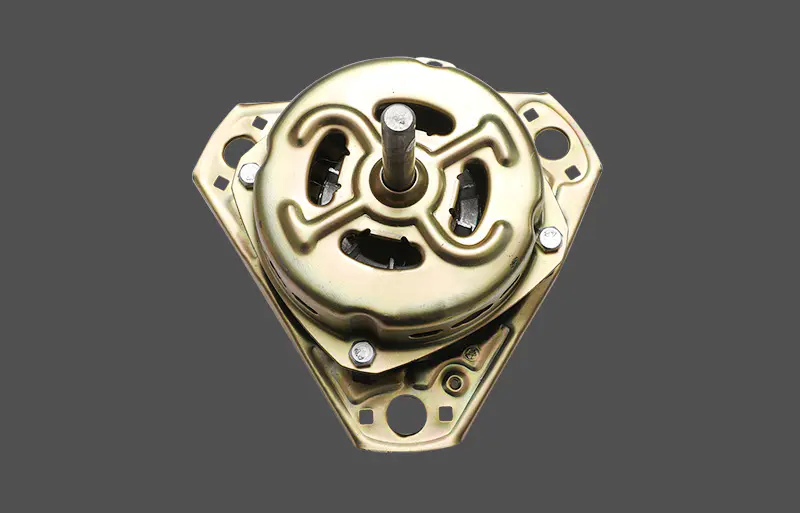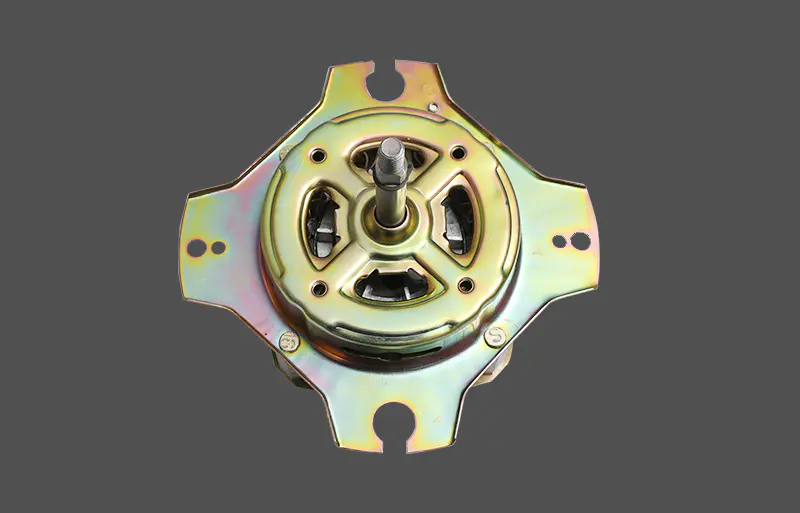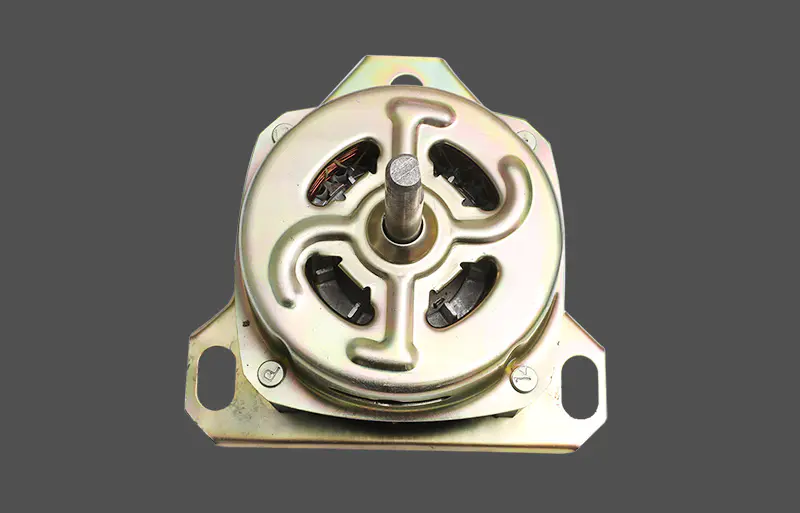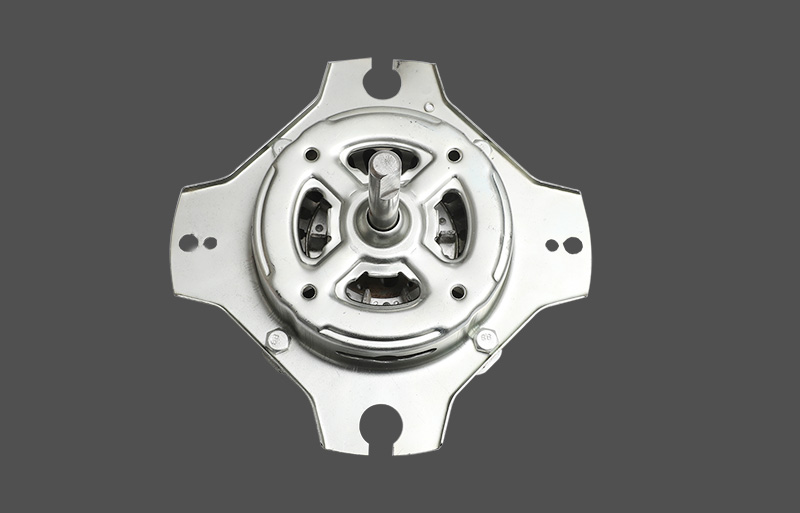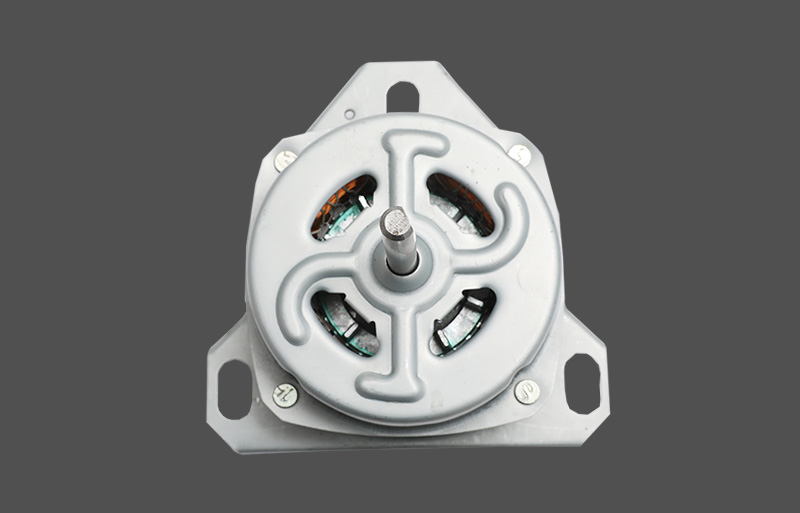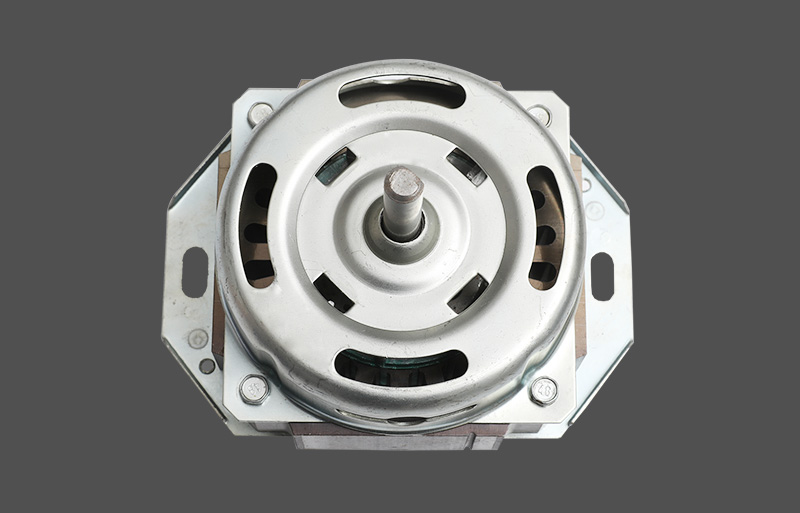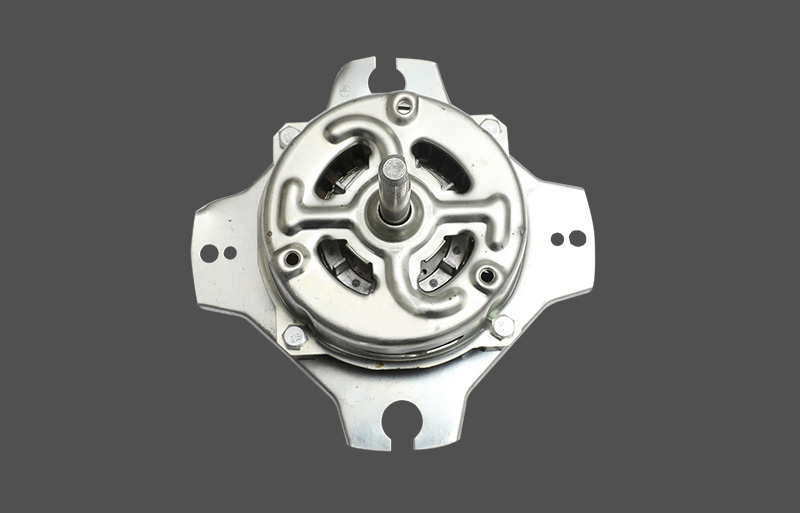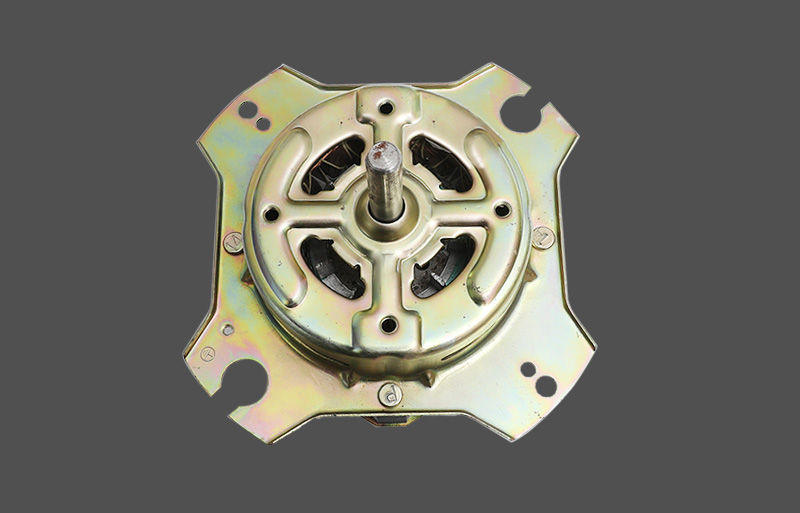Washing machines are indispensable household appliances in modern families. If the washing motor of a washing machine makes abnormal noise during operation, it often affects the user experience and even indicates potential failures. The abnormal noise problems of washing motors are complex and diverse. Understanding their causes is crucial for timely maintenance and extending the life of the equipment.
Bearing wear or damage
The bearing of the washing motor is an important component that supports the smooth operation of the motor rotor. After long-term use, the bearing lubricant dries up, wears or corrodes due to water ingress, causing friction between the metal parts inside the bearing and emitting obvious friction or buzzing sounds. Bearing damage not only produces abnormal noise, but also causes the motor to rotate poorly, and in severe cases, the motor may be stuck.
The abnormal noise of the bearing is often aggravated when the motor runs at high speed. If it is not replaced in time, it may cause greater mechanical damage.
Abnormal gap between the motor rotor and the stator
A certain gap is maintained between the motor rotor and the stator to ensure smooth rotation. If the gap is abnormal due to poor assembly, shaft bending or component deformation, the rotor may touch the inner wall of the stator when rotating at high speed, causing friction or impact sounds. The gap problem will increase mechanical resistance, reduce motor efficiency, and cause overheating and early motor damage.
Abnormal clearance is often caused by shaft wear or external impact on the motor after long-term use.
Short circuit of motor winding or loose coil
If the internal winding coil of the washing motor is short-circuited or the coil is not firmly fixed, the electromagnetic force is abnormal when the motor is running, causing the winding to vibrate, and then a buzzing noise is emitted. Loose coils may also be accompanied by intermittent power failures or power reduction, affecting the normal operation of the motor.
Motor coil problems are mostly caused by insulation damage due to overload, humid environment or mechanical vibration, which then causes electrical abnormalities.
Unbalanced or eccentric rotor
Unbalanced or eccentric rotors can cause periodic vibration and abnormal noise when the motor is running. During the long-term use of the washing machine washing motor, the rotor mass distribution is uneven, or it is deformed due to mechanical damage, and an unbalanced torque is generated during rotation, causing noise.
The problem of rotor eccentricity not only affects the noise, but also aggravates the wear of bearings and other parts of the motor, shortening the life of the motor.
Wear of mechanical transmission parts
The washing motor of the washing machine is connected to the washing tub through belts, couplings or gears. Wear, looseness or damage of the transmission parts will produce abnormal noise. Belt aging and cracking lead to slippage, poor gear meshing produces friction sound, and loose coupling produces impact sound, which will reflect the running state of the motor.
Transmission component problems are often accompanied by abnormal vibration of the whole washing machine, which requires regular inspection and maintenance.
Abnormal motor cooling fan
Some washing motors are equipped with cooling fans to prevent overheating. Deformed fan blades, severe dust accumulation or bearing damage will cause noise when the fan rotates. Abnormal fan noise is usually accompanied by abnormal increase in motor temperature, affecting the heat dissipation effect and aggravating motor aging.
Fan failures are mostly caused by environmental dust and long-term operation wear, and cleaning and maintenance are very critical.
Loose installation or loose foundation
The washing motor of the washing machine is not firmly installed, and the base or bracket is loose, which will cause vibration and abnormal noise when the motor is running. The vibration is transmitted through the body, resulting in an increase in the overall equipment noise. Poor installation quality or loose screws after long-term use are common reasons.
Good installation and regular inspection can effectively avoid noise problems caused by loose structure.
Material expansion caused by excessive motor temperature
The motor is overloaded for a long time or has poor heat dissipation, resulting in an increase in internal temperature. When the temperature is too high, the motor coil, insulation material, housing and other parts expand, and friction or collision produces slight abnormal noise. This kind of noise is usually accompanied by a decrease in motor power and protection action.
Temperature abnormality needs to be combined with the motor overload protection device and cooling system inspection and analysis.
Foreign objects enter the motor
During the washing process, foreign objects such as buttons, small coins, fabric scraps, etc. mistakenly enter the motor, and the foreign objects collide when the motor rotates to produce noise. Foreign object blocking not only causes abnormal noise, but may also cause the motor to get stuck or damaged.
Cleaning maintenance and filter device design are essential to prevent foreign objects from entering the motor.
Motor electrical control failure
When the motor control board or driver is abnormal, it may cause the motor to run unstably, and current fluctuations may cause the motor to vibrate and produce abnormal noise. Electrical control failures are manifested as intermittent noise and abnormal speed during operation. In severe cases, the motor cannot start normally.
Electrical failures need to be diagnosed by professional testing instruments to check the control circuit and sensor status.




